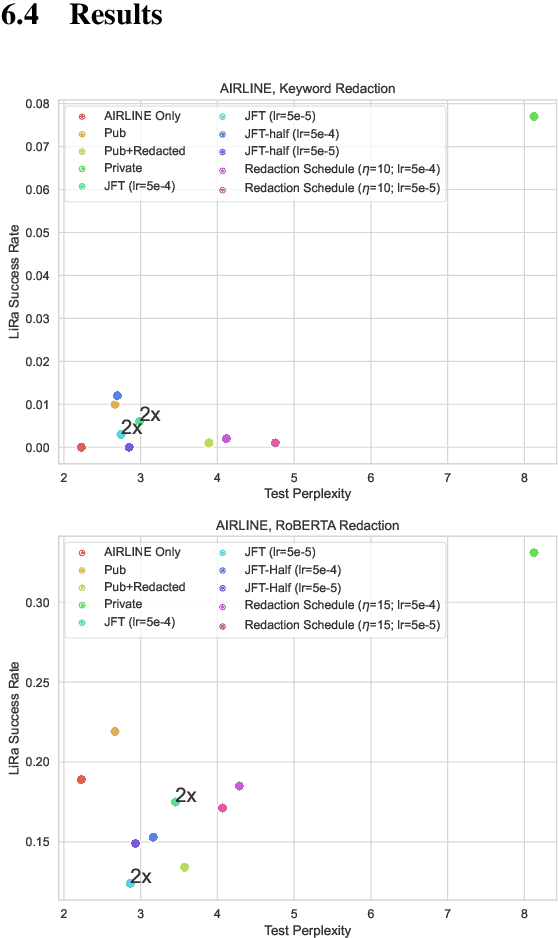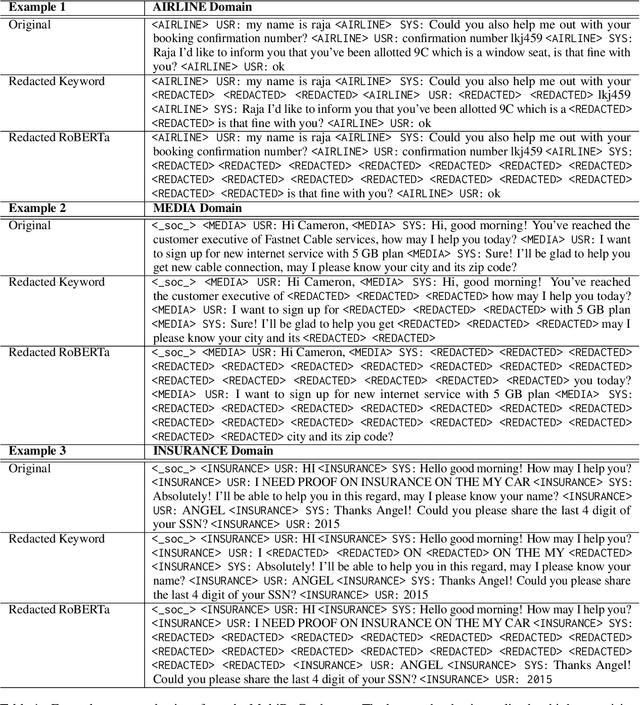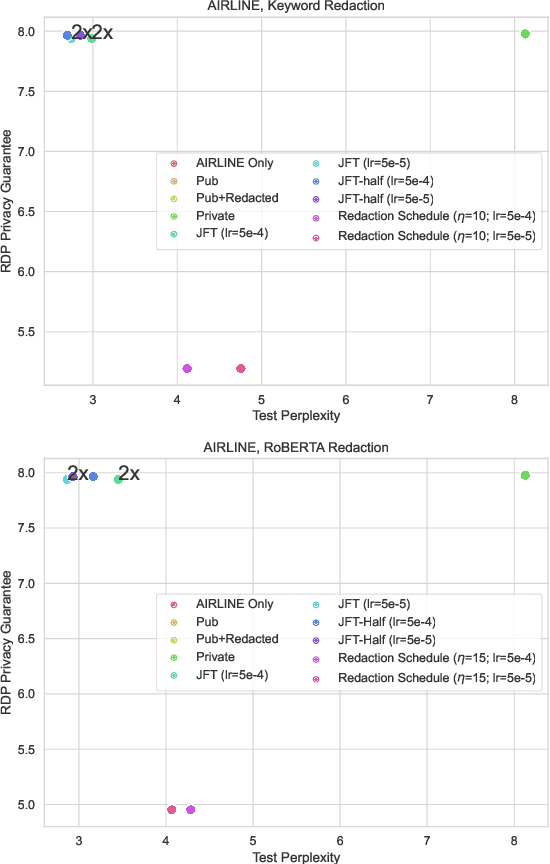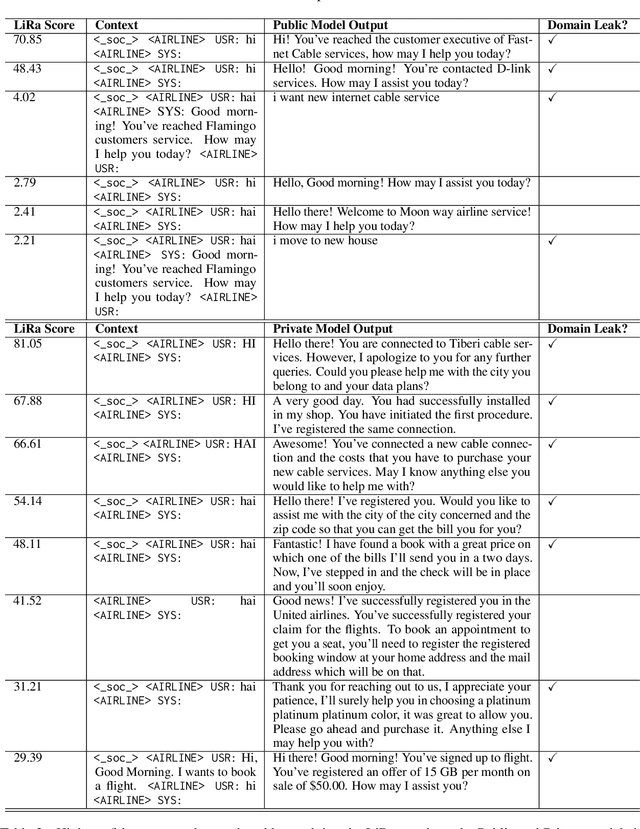Domain Private Transformers
Paper and Code
May 23, 2023



Large, general purpose language models have demonstrated impressive performance across many different conversational domains. While multi-domain language models achieve low overall perplexity, their outputs are not guaranteed to stay within the domain of a given input prompt. This paper proposes domain privacy as a novel way to quantify how likely a conditional language model will leak across domains. We also develop policy functions based on token-level domain classification, and propose an efficient fine-tuning method to improve the trained model's domain privacy. Experiments on membership inference attacks show that our proposed method has comparable resiliency to methods adapted from recent literature on differentially private language models.
 Add to Chrome
Add to Chrome Add to Firefox
Add to Firefox Add to Edge
Add to Edge